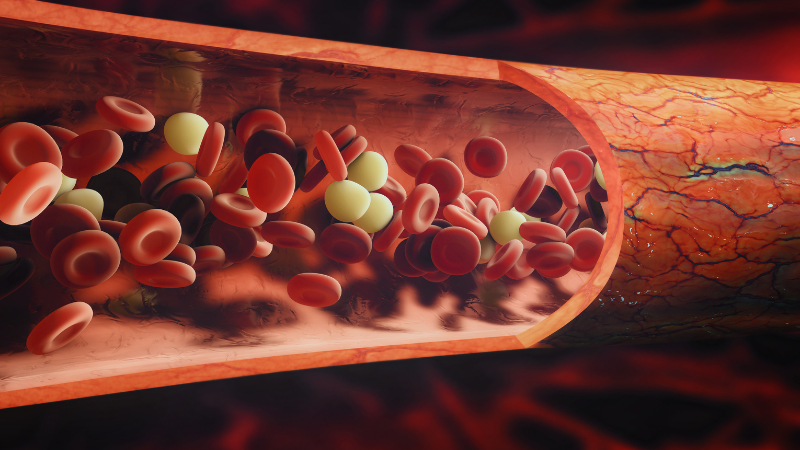How Long to Recover From Vitamin B12 Deficiency?
“Make sure you eat your vitamins” is something you’ve probably heard from all of your elders growing up. And while all vitamins are necessary there are some that are more important than others. Vitamin B12 being one of the most important of them all.
How Long to Recover From Vitamin B12 Deficiency?
The essential vitamin plays a role in the healthy formation of your red blood cells, the development and functioning of your central nervous system and even DNA synthesis.
However, despite knowing how important it is to our body, studies suggest that 47% of all people living in the sub continent have reported a “low-normal” deficiency of Vitamin B12.

But whether you suspect yourself to be low on B12 or have taken steps to treat yourself for the deficiency, waiting until you fully recover can be seriously frustrating.
Thus, in the sections that follow, we’ve taken it upon ourselves to let you know how much time your treatment could take in addition to the symptoms you can expect to experience due to your vitamin B12 deficiency.
How Fast Can You Recover from Vitamin B12 Deficiency?
The time it takes to recover from a Vitamin B12 deficiency is different for each individual and it depends on how deficient you are in the essential vitamin. Plus, it also depends on what kind of treatment you’re receiving.
For instance, if your health care provider has detected that you’re suffering from low B12 levels then they’ll offer you one of two treatment methods:
- A shot containing 1 mg of B12 injected straight into your muscles.
- An oral supplement that contains a high dose of a B12-supplement.
Historically intramuscular injections have been proven to work faster than oral supplements. As they inject the vitamin straight into your bloodstream as opposed to oral supplements which have to first be metabolized by your body before being sent into your bloodstream.
However, the only way you’ll recover quickly, even with injections, is if you’re only mildly deficient in the vitamin and are only showing minor symptoms.
Examples of minor symptoms include mild fatigue, loss of appetite and headaches which a 1 mg shot of vitamin B12 should be able to improve in just a few days.
Symptoms of a Vitamin B12 Deficiency
We’ve already mentioned a few examples of the minor symptoms you could experience due to a vitamin B12 deficiency, but that’s just the tip of the iceberg.
Here’s a full list of the symptoms, both major and minor, that you could experience if you’re body has low B12 absorption:

- Early onset of fatigue during workouts or daily activities.
- Pale skin or hyperpigmented skin.
- Heart palpitations
- Memory loss or forgetfulness.
- Tongue inflammation.
- Slow metabolism.
- Energy deficiency
- Muscle weakness
- Psychological issues such as depression and confusion.
Signs That You’re Deficient in Vitamin B12
Yes it’s true that a deficiency in Vitamin B12 does come with plenty of symptoms. However, for most individuals these symptoms start appearing too late.
Thankfully, there are a few signs that health care providers can use to detect any deficiency you might have of Vitamin B12 early.
So early on, you might not have to take any oral supplements and can just adjust your diet to increase its consumption naturally.
Here are the signs that your healthcare provider might use to detect your B12 deficiency:
- If your blood work shows abnormally large and nucleated red blood cells.
- If your blood work shows decreased levels of haptoglobin, increased reticulocyte count and high levels of lactate dehydrogenase.
So, make sure you ask your doctor or nutritionist about these specific elements of your blood work to get ahead of your B12 deficiency.
How to Monitor your Vitamin B12 Levels?
Investing in your health is always a smart choice, which is why submitting yourself for regular vitamin B12 tests is the right thing to do. That is, if you don’t want to eventually be surprised that you developed the deficiency and then have to take supplements or injections to combat it.
Getting your blood work done from time to time and showing the results to your doctor should work.
As he/she should be able to tell you, according to the signs we mentioned above, if you really are suffering from a B12 deficiency and if it can be overcome by naturally adjusting your diet.
Other than that, you can also monitor some of the symptoms we’ve mentioned above and alert your doctor or nutritionist if any of them start intensifying.

Side Effects of Consuming Too Much Vitamin B12
There’s a reason why doctors and nutritionists recommend a specific dosage of Vitamin B12 supplements that you should take to battle your deficiency. But before we get to the reason, let’s first talk about what that recommended dosage is.
The National Institute of Health declares the recommended dosage of Vitamin B12 to be:
- Between 2-2.4 mcg (micrograms) daily for ages 14 or older.
- 2.6 mcg daily for pregnant women.
- 2.8 mcg for breastfeeding women.
Consuming more of this recommended amount on a daily basis can cause the following side effects:
- Itching
- Mild Diarrhea
- Dizziness
- Headaches
- Nausea
- Skin rash
- Vomiting
- Sensation of Swelling
- Congestive heart failure early on in treatment.
- Pulmonary edema
- And even blood cancer
Now, you must’ve noticed that most of these side effects are relatively mild. However, going over the recommended daily intake amount of Vitamin B12 could also lead to life threatening conditions like blood cancer and congestive heart failure.
So, just make sure that any supplements you take are offered to you by your doctor or nutritionist.
Final Thoughts
The only way to not be deficient in Vitamin B12 in the first place is to come up with a comprehensive plan to keep your diet balanced at all times.
To rigorously monitor and manage your intake of these important vitamins because like your investment in a business, investing in your health is also going to give you long term benefits.
Thus, make sure you regularly visit your doctor or nutritionist for any check ups in order to stay ahead of any health problems you might encounter including a Vitamin B12 deficiency.





